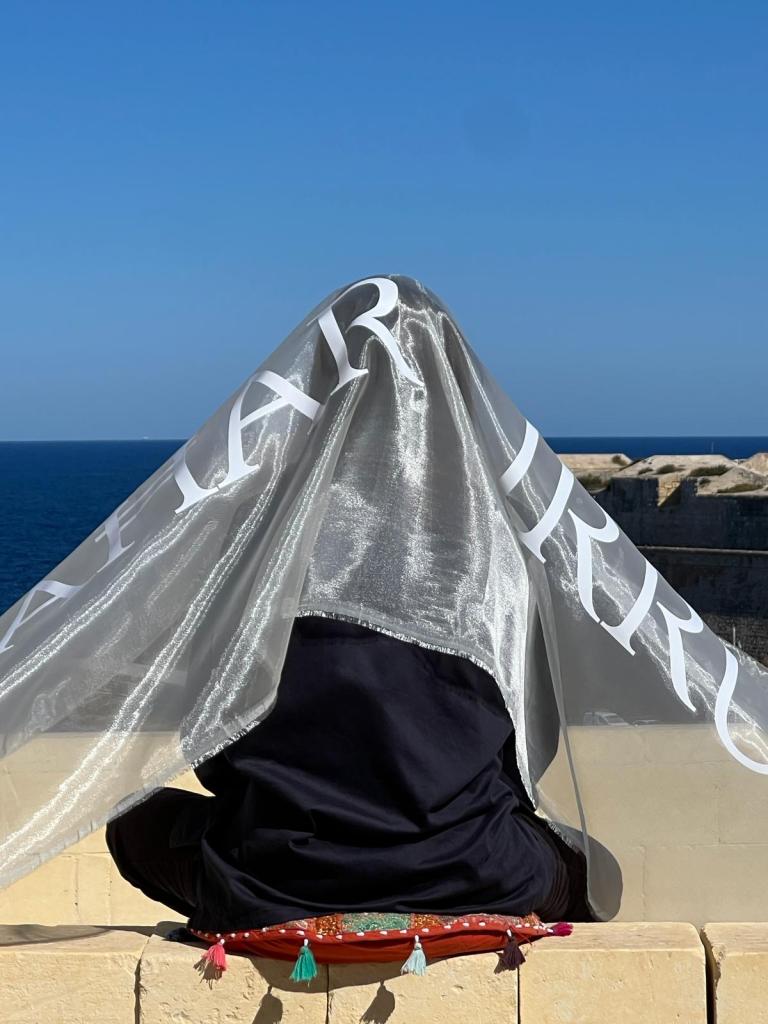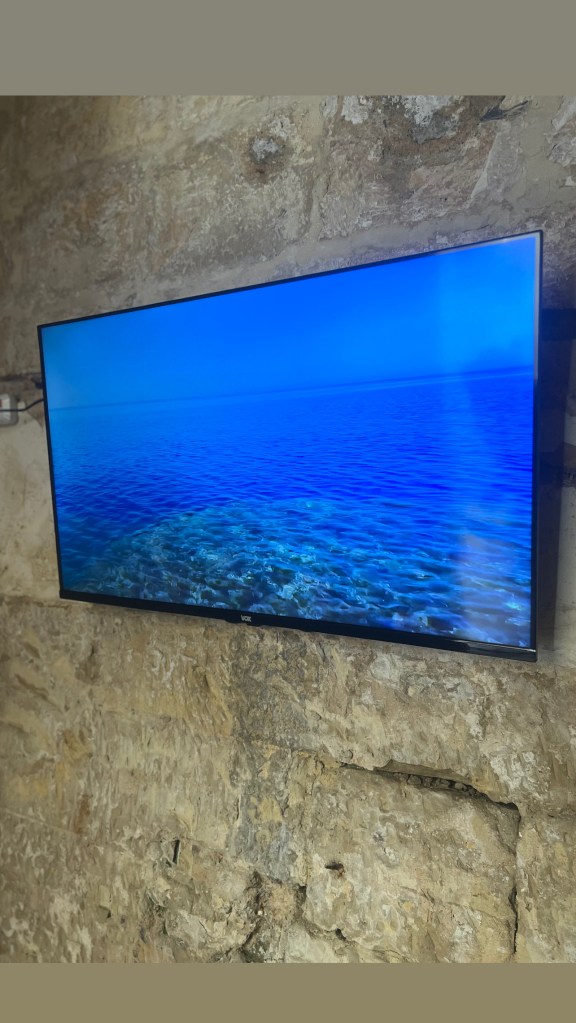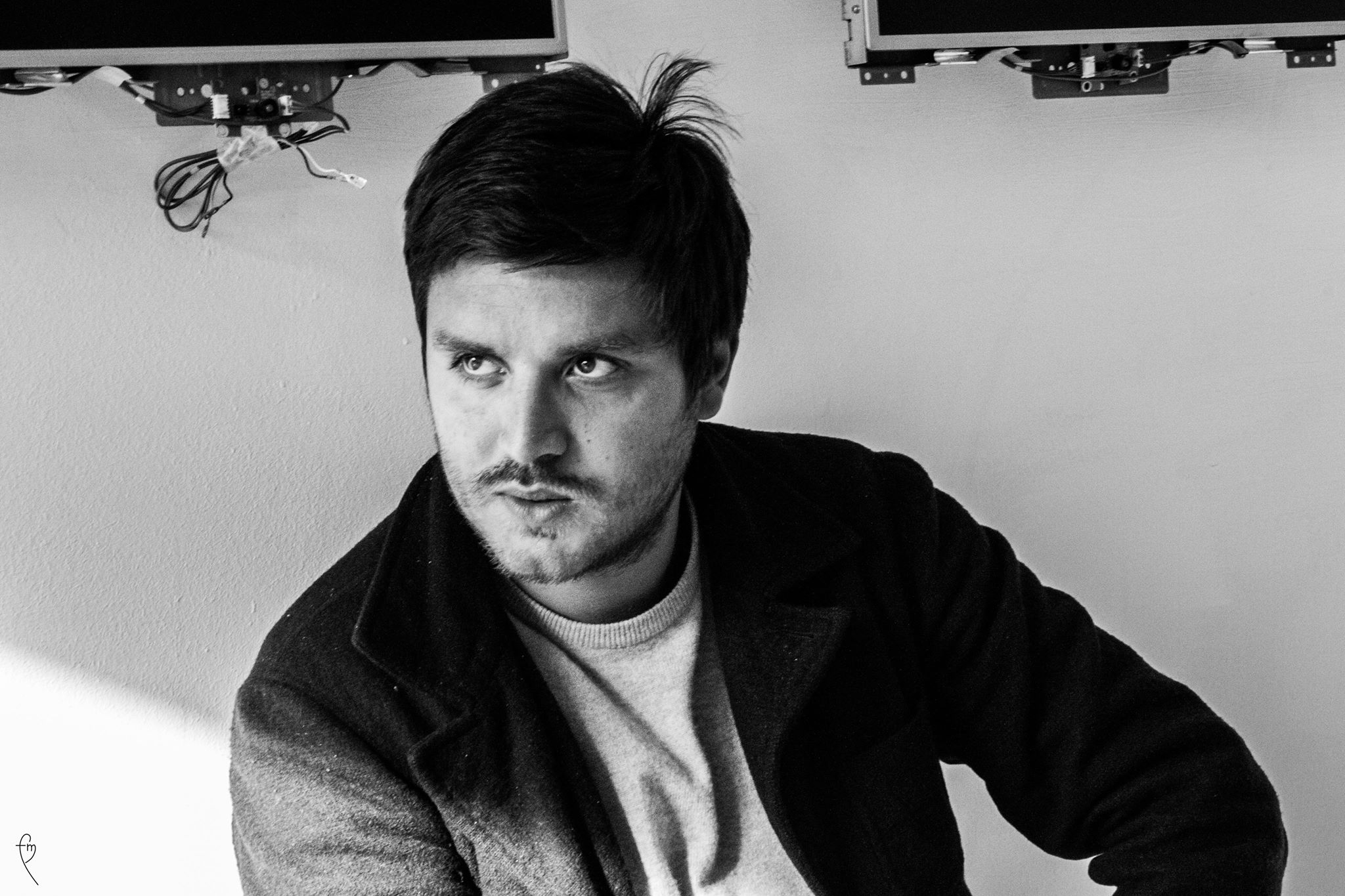read the interview on the issue march 2024 / artpaper magazine

In occasion of the maltabiennale.art the research group Rethinking Lampedusa1 has been invited to contribute
to the public program with a residency program named Rethinking Lapedusa. Rethinking Malta2, establishing an international collaboration between art academies.
Core of the residency program will be a performative sea journey to connect the islands of Lampedusa and Malta, symbolically mending the Mediterranean3.
The program will be open to the public with a series of events4 that will take place at the Armoury in Birgu, where an evocative meditative chamber has been set up with an audio-visual installation titled il mare mi ha rifiutato5.

Rethinking Lampedusa
about the research group
Rethinking Lampedusa is a research group born in the context of the homonym art residency program, promoted and organized in 2022 by MADE Program, Art & Design Academy based in Siracusa. The project was born in collaboration with the Northeastern University of Boston and coordinated by the philosopher and writer Leonardo Caffo. The research group is constituted by the residency participants, which include artists, designers, photographers, musicians – tutors and students – who have worked together over the years on a geo-imaginary and political design mapping of the island of Lampedusa in collaboration with the Mediterranean Hope.
The research group engages critically with the condition of the migrant challenging the concept
of borders and the idea of nation-state, speculating on the concept of the island as a utopia where an inclusive, communal and reciprocal way of living is possible.

Through different workshops and participatory practices, the research group reflects on alternative methodologies of knowledge production to activate new ways of thinking and doing, embodying art as a radical modality for responding to current urgencies as well as to the unknown.
Each year, a collective artistic journal has been designed by the participants to keep track of the experience and try to transfer the island’s utopia, including concepts such as the failure of integration, Toni Negri’s idea of the new barbarians, migration as a dismissal of the nation-state, the temporary autonomous zones, the theater of cruelty.
2 Rethinking Lampedusa. Rethinking Malta
about the residency program
DATES
May 8th-18th 2024
DESCRIPTION
What kind of relationship exists between Lampedusa and other Mediterranean islands such as Malta? What idea of Europe is at play between their borders?
The residency program 2024, Rethinking Lampedusa. Rethinking Malta, will be open for Italian students from MADE Program – Art & Design Academy based in Siracusa, and Maltese students from MCAST – The Malta College of Arts, Science & Technology.
The students will participate in a site specific research project, spending five days on the island of Lampedusa, one-day sea crossing and four days in Malta, reflecting together on the condition of the migrant, the concept of the island as utopia and the connections between the two islands.
Formal tutors and external guests guide participants through site specific explorations, pedagogical experiments and open discussions, cultivating an embodied knowledge of agency. The program offers horizontal – non-hierarchical and participatory – workshop activities based on different experiential explorations of the island according to students preferred artistic practice. Sounds, movements, maps, photographs and video, utopian manifestos, come together to draw a new geo-political metaphor for the Sicilian island, unfolding the condition of the central Mediterranean area as a way to understand the human contemporary condition.
Students will be actively involved in the process of thinking, co-designing and documenting the whole residency through different media and they will contribute to the collective journal that will be exhibited during the public program of the Biennale as part of the group’s research.

3 Mending the Mediterranean
about the performative sea journey
DATES
May 13th 2024
Lampedusa and Malta are two islands alike yet contrary in the Mediterranean: twin beacons in the world’s nocturnal expanse, two distinct pieces of land that could offer refuge to those compelled to abandon their homelands. Connecting the two islands through a symbolic sea journey means to weave together two distinct visions of Europe, sailing through feelings of caution and hospitality, terror and hope, indifference and humanity.
“Mending the Mediterranean” is an artistic performative act that seeks to establish a profound connection between the contrasting islands of Malta and Lampedusa, acknowledging and bridging their divergent political stances on migration. The act of setting sail into a sea that rejects, and yet barely touches our faces, becomes a poignant metaphor for navigating a path of hope.
By embarking on this journey in the Mediterranean waters holds the potential to transcend the boundaries of conventional European ideologies, fostering a collective re-imagination of our identity as humans, and holding the potential for a different future.
Thanks to the collaboration with the Naval League of Catania, the artistic act takes on an additional layer of significance through the repurposing of two ships that have been confiscated from traffickers, signifying that even something born in darkness can metamorphose into a vessel of hope. These boats stand as symbols of transformation, highlighting the resilience of a sense of faith that echoes with the shared struggles and aspirations of those who have traversed the Mediterranean in search of a better life.
The symbolic connection of the two islands aim to become a vessel for dialogue, understanding, and empathy. “Mending the Mediterranean” is a journey that transcends geographical boundaries, inviting participants to reflect on their place in the world, to rethink preconceived notions in relationship with the other and the elsewhere, and it aims to be an invitation to collectively reimagine the future.
4 a series of events
about the events open to the public:
DATES
May 14th 2024
A Meditation for Lampedusa
Performative collective guided meditation, with live soundscape to reflect together, with all the possible cognitive limits, “what is like to be a migrant”. Open to everyone.
DATES
May 15th 2024
Sounds of the island
Immersive experience for kids, experimenting with words and sounds. Starting from a text about migration, Giovanni and Carlo will read and create a collective soundscape together with kids.
DATES
May 16th 2024
Open discussion and final lecture
14.00 – 16.00
Open discussion with students about their experience and research on Lampedusa. Screening of the documentation produced during the workshop, including performative moments.
16.00 – 19.00
Final Lecture about “Migration and boarders in the Mediterranean” with all the participants from the research group, special guests and the director of the Biennale.

5 Il Mare Mi Ha Rifiutato about the installation
DATES
March 11th – May 18th 2024
LOCATION
The Armory, Birgu
Il Mare Mi Ha Rifiutato, 2024
Audiovideo installation, textiles
curated by Leonardo Caffo, Roberta Esposito, Carlo Alberto Giardina
The sea (has) rejected me – so goes the final phrase uttered by the Sicilian physicist Ettore Majorana before his premature disappearance in 1938. Did he disappear by taking his own life out at sea, or did he vanish whilst on the ferry ride from Naples to Palermo? According to Leonardo Sciascia, these words combined with his disappearance symbolise the apex of Majorana’s theories – it is in the disappearance that ‘things’ manifest themselves as truly existing.
Taking this notion as a starting point, the work aims to recreate a meditative chamber, set up with suspended fabric panels bearing this iconic phrase in four languages and an audio-visual work opens a window overlooking the sea of Lampedusa in the direction of North Africa.
The meditative chamber will be dedicated to hosting a public program focused on the theme of migration in the Mediterranean. An installation dedicated to these waters, where at least 28,000 people have died in the last ten years. To symbolise their absence 28 holes are punctured into the blue fabric, with 28 meditative stations being part of the performance happening in May.
Il mare mi ha rifiutato seeks to evoke a sense of commemoration for the absence of the many buried by the sea, the presence of those who have been rejected by the sea and therefore survived.
After years conducting research in the field, Rethinking Lampedusa research group, on the occasion of the biennial, will involve the students of Made Program (Syracuse, Sicily) and MCAST (Malta) for an international alliance between creative institutions, emphasising the need to think about the Mediterranean as the crossroads of the most important political challenges of the contemporary, in a metaphorical bridge between the two islands that most represent its contradictions and resources – Lampedusa and Malta.
A central and integral part of this connecting experience will be a sea crossing, which will take place in May, proposed as a performative act aimed to symbolically mend together the Mediterranean by connecting the two islands. The act of setting sail into a sea that rejects, holds the potential to transcend the boundaries of conventional European ideologies, fostering a collective re-imagination of our identity as humans, and holding the potential for a different future.
Thanks to the collaboration with the Naval League of Catania, the artistic act takes on an additional layer of significance through the repurposing of two ships that have been confiscated from traffickers, signifying that even something born in the darkness can metamorphose into a vessel of hope.

After the sea crossing, the research group will come to inaugurate the space with a collective meditation open to the public, emphasising the cross-reference between presence (the saved and the rejected) and absence (the dead and the not-yet-arrived). Disappearance thus becomes, as for Majorana, the only trace of the real. Only for those who have never arrived, or rather for those who no longer have hope, as Walter Benjamin used to say, one must continue to hope and navigate. And thus to make art.

